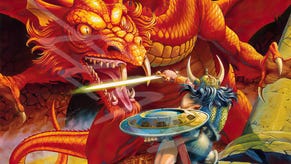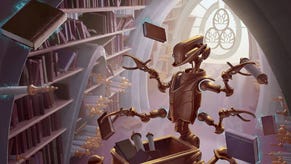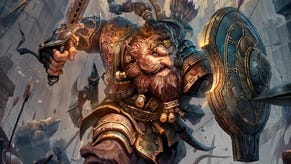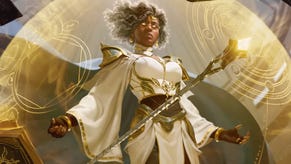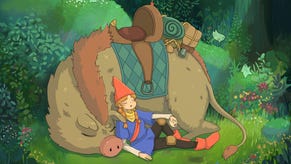5 things DMs should copy from D&D actual play shows like Critical Role and Dimension 20 (and 5 to avoid)
How to bring the amazing storytelling and memorable moments of your favourite series to game night.
Actual play shows are live or recorded sessions of tabletop roleplaying games such as Dungeons & Dragons, the most popular of which include Critical Role, Dimension 20 and The Adventure Zone. Countless new RPG players credit actual plays with introducing them to the hobby and showing them how to play.
Now, the new wave of players and actual plays are influencing official releases and the overall direction of tabletop RPGs in a hugely positive way. So what makes actual plays so good? And why can’t dungeon masters just copy everything we see on TV?
Here are some of the things that DMs should borrow from their favourite show - and some they should leave to the pros.
Things to Copy
Player-driven campaign design
In actual plays, player backstories are important to the overall story, and are always connected to places, events and other characters in the campaign. Whether the DM is running a published module or worldbuilding on their own, it’s important to make sure the player characters have connections to the setting and its inhabitants. Players can even have a hand in worldbuilding, like how Taliesin Jaffe helped create his character Percy’s home of Whitestone in Critical Role.
The Rule of Cool
In tabletop RPGs, the Rule of Cool is when the DM lets a player attempt something that isn’t described in the rules or their character sheet because it would be cool for the story. It’s a big part of what makes TRPGs different from video games and encourages player creativity and problem solving. Players can use their own Rule of Cool by making a suboptimal decision that enhances the story and reinforces their characters’ flaws and bonds. In actual plays, players do this whenever it makes narrative sense and the stakes are low to add a little comic relief.
TV-rated appropriateness
The content of your game is a part of the social contract between the players of the group. Actual plays may get disturbing or raunchy at times, but they are normally on par with what you might find in other widely enjoyed media. Your favourite actual play groups probably play differently at home, but it’s still good practice to start your own campaign with an agreement about its content. Feeling uncomfortable isn’t the goal, so make an effort to understand your fellow players and support them. Try safety tools like Lines & Veils at the start of a campaign, and the X-Card during sessions. For virtual games, Roll20 now has a built-in Safety Deck that lets players give feedback easily and anonymously.
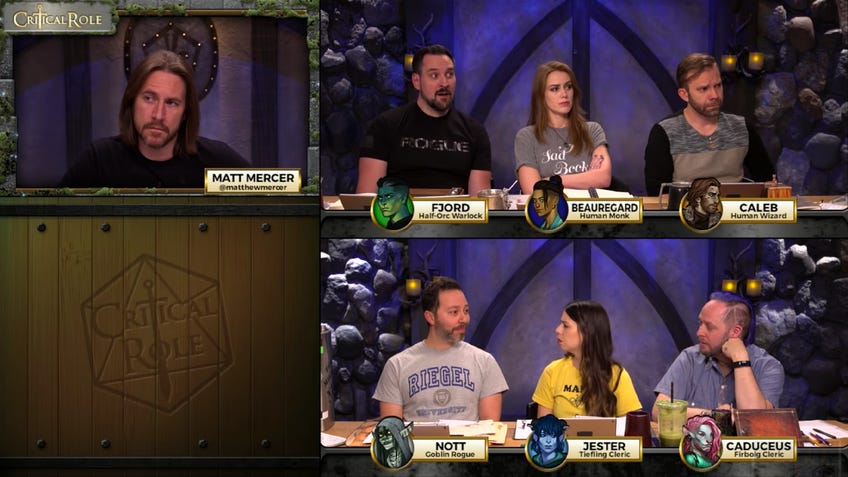
Epic first sessions - and cliffhanger endings
Actual plays have to compete for viewers with each other as well as film and TV. DMs aren’t that different with their home games. You want your group to come back for more three-hour games to hopefully finish a campaign, but they could easily join another group or play video games instead. Hook them in like the actual plays do by making your first session as epic as possible, ideally with a cliffhanger ending. Don’t save your best ideas for some later point in the campaign that may never come; there’s no need to wait!
Table manners
Actual plays are a great resource for new players to see the basics of how to interact at the table, but the real secret is what happens off-screen. Even the pros get rules wrong sometimes, but it’s never an argument at the table. Dungeon masters aren’t omniscient and most of the time they just need a reminder. If it’s too time-consuming to look up at the table, a good DM will keep the game rolling and resolve rules issues between sessions. In character creation, players pitch a few options they’re interested in playing and then work together to make a party that’s balanced in terms of game mechanics and personalities.
Things to Avoid
Sacrificing gameplay for storytelling
Actual play shows are made for an audience that isn’t at the table, so they tend to add theatrical elements to enhance the story at the cost of gameplay and player agency. Critical Role has too much monologuing for your average home game, while Dimension 20 takes up its entire first session with character intros. They’re incredible for viewers - but that’s who they’re for. When you’re playing the game at home, make sure you’re playing it.
Sky-high expectations
We expect a lot from the actual play shows we watch, and they do their best to entertain and get our attention. Your home games probably aren’t going to have the production value and intensity that actual plays have. (If they do, you should maybe consider streaming them!) Your audience is your fellow players, so don’t put yourself or others under too much pressure. Your home games will be better than actual plays because they’re being played by you and your friends, and you’ll get “better” at the game the more you play it.

Overspending time and money
Actual plays make money, so they can afford to spend it on things like professional artwork, miniatures and game room sets. Their DMs can spend an inordinate amount of time on worldbuilding and session prep because it’s their job (and what a job it is!) The rest of us, however, need to budget our time and money appropriately for our home games.
Minimising combat
In actual play shows, combat is much less frequent than in most home games. The reason is that things like dungeon crawls and random encounters are risky for making good TV, not that they aren’t fun to play in proper doses. Have a discussion with your group about the prevalence of combat in your game, and make sure your rule system reflects that decision. If you’re running D&D 5E with new players, consider including at least one dungeon and maybe even a dragon.
The only game is D&D
The vast majority of actual play shows are played with the Dungeons & Dragons 5E system. Viewers may not have even heard of any other roleplaying games, much less know how to play them. As a result, D&D 5E is stretched and squeezed into as many genres as possible, even when another rule system would be a better fit. At home, however, nothing’s stopping you from trying all the other tabletop RPGs the hobby has to offer.



